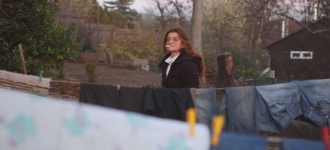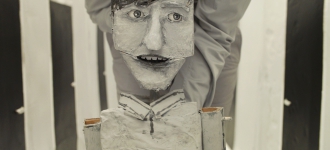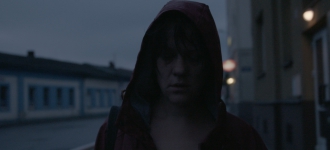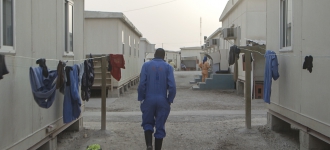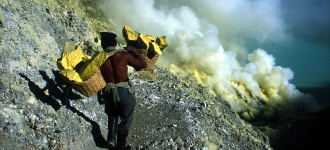In cooperation with the International Labour Organization (ILO), Budapest
As the world of work goes through profound changes, we inevitably find ourselves confronted with some fundamental questions about the role labour plays in our societies. Does work as we know it satisfy our social, psychological or spiritual needs? How is work shaped by the culture we live in? Are all forms of work valued? Do we really need to work all the time? How will we work in the future, given the constant emergence of new technologies, the changing face of the planet, or the flow of migration in the globalized world? In 2019, the International Labour Organization (ILO), the UN agency for the world of work, opens these questions up for a global discussion to mark its 100th anniversary. The ILO, in collaboration with Verzió, invites you to reflect upon these questions through the human stories in the film section, Labour: Our Life.
The ILO and Verzió’s collaborative program presents a wide range of films and problems. We invite you to travel the world to explore the working conditions in Ukrainian coal mines, Indonesian sulphur factories, and a Pakistani port (The Workingman’s Death), witness the reshuffling of the largest car factory in Russia (The Russian Job), ponder the consequences of working with highly toxic materials in China to produce electronics for a global market (Complicit), and gain insight into the daily life of construction workers building football stadiums in Qatar (The Workers’ Cup). The questions of labour conditions, workers’ rights, and future prospects are not just a concern for people in far-away countries. In the Czech Republic, a dedicated journalist examined working conditions first hand by signing up for the lowest-paid jobs (in a hospital washroom, a poultry processing plant, a supermarket, a razor blade factory, and a waste sorting room)—the results of which can be seen in her documentary, The Limits of Work. Last but certainly not least, we will address and discuss a disturbing case of modern-day slavery with the story of a woman kept as a domestic slave for ten years by a family in Hungary. Drawing courage from the filmmaker's presence, the main protagonist of A Woman Captured decides to escape and regain her freedom, exposing her vulnerability, as well the power of documentary filmmaking to not only make a difference in the life of one person, but—by starting an impactful debate—to contribute towards large-scale change.
These captivating stories take us beyond our daily experiences, and yet they tell us something about ourselves. Global issues might seem abstract, distant or hard to relate to. These documentaries put a human face on the issues, and thereby build bridges of empathy that lead to a more complex understanding of our reality, wherein work plays such a central role.
Documentaries have an even bigger impact when they lead to discussion. Why don’t you initiate a conversation with your friends, family, students or colleagues about what work means to you?
Markus Pilgrim, Director
International Labour Organization
Decent Work Technical Support Team and Country Office for Central and Eastern Europe
| Tuza-Ritter Bernadett • Hungary • 2017 • 89min • Hungarian | Erik Holmström, Fredrik Wenzel • Sweden • 2017 • 28min • Swedish | Heather White • USA • 2017 • 90min • Mandarin, English |
| Heather White • USA • 2017 • 90min • Mandarin, English | Apolena Rychlikova • Czech Republic • 2017 • 70min • Czech | Petr Horký • Czech Republic • 2017 • 64min • English, Russian, German, Czech |
| Adam Sobel • United Kingdom • 2017 • 89min • English, Nepali, Malayalam, Twi, Ga, Hindi, Arabic | Michael Glawogger • Germany, Austria • 2005 • 122min • Pashto, Yoruba, German, English, Igbo, Indonesian, Mandarin, Russian |

